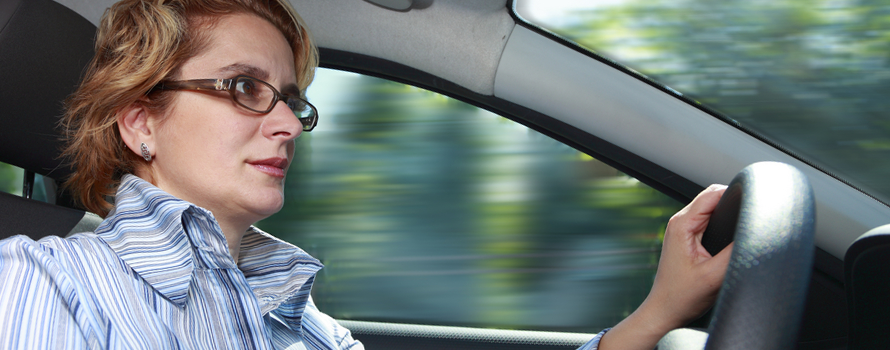
You should always wear your glasses or contact lenses if you need them for driving. If you don’t, you are breaking the law and putting others at risk.
Top tips for driving
In addition, optometrists recommend:
- Always carry a spare pair of glasses or lenses with you, especially on long journeys or when driving abroad
- Some glasses styles are better for driving than others – for example, thin rims and high sides improve all round vision
- Plastic or polycarbonate lenses are less likely than glass to shatter in an accident
- If you wear bifocals or varifocals, you should ask your optician to recommend the most suitable lens design for driving
- Polarising lenses reduce glare, making them ideal for driving during bright daylight hours
- You should keep your windscreen clean and your windscreen wipers in good order.
Vision at night
Amazingly, 20% of drivers can’t see properly at night. If you think you may have a problem in this area, ask your optician for advice. The following tips will also be useful:



